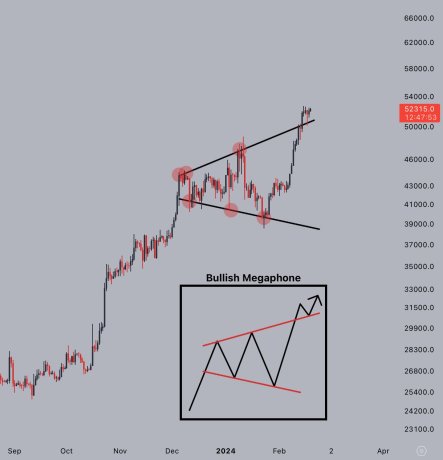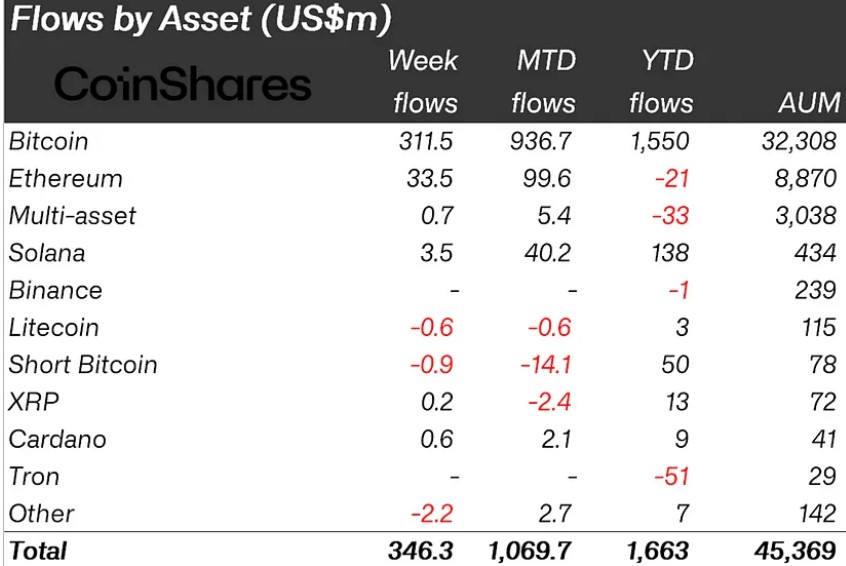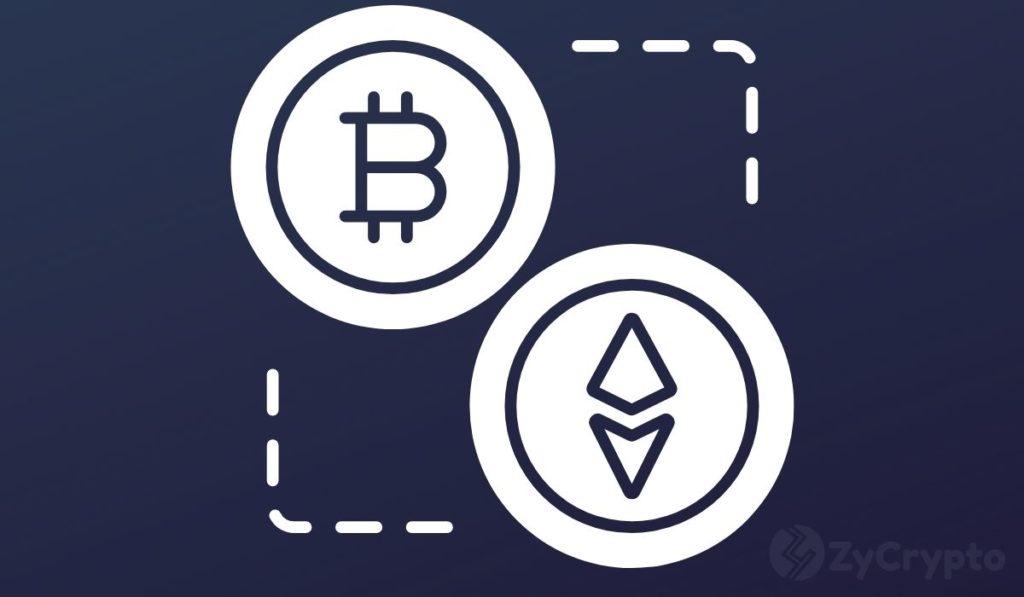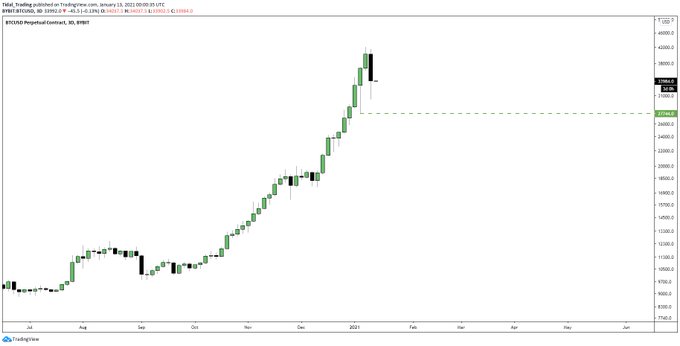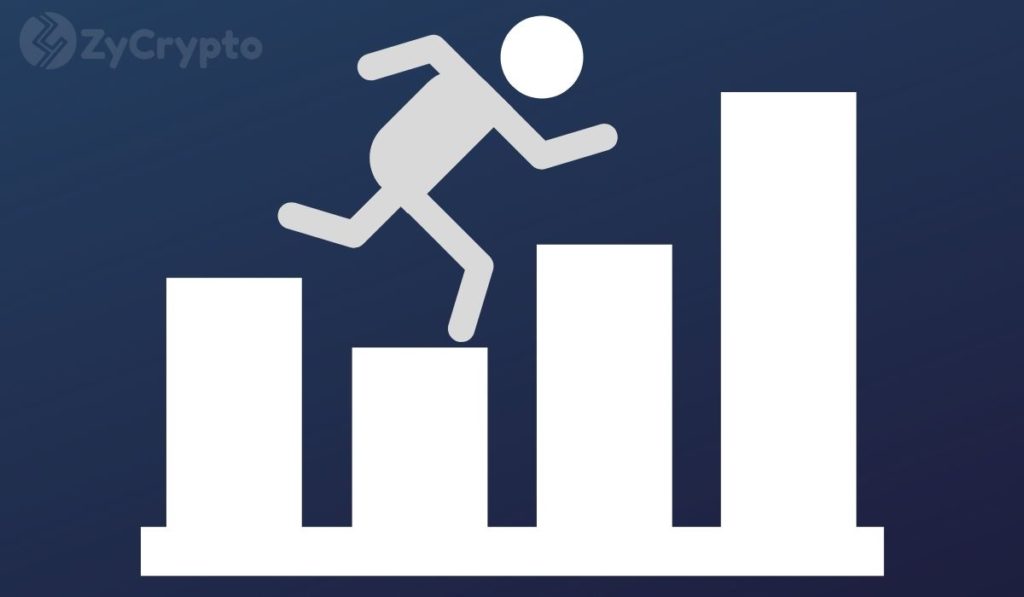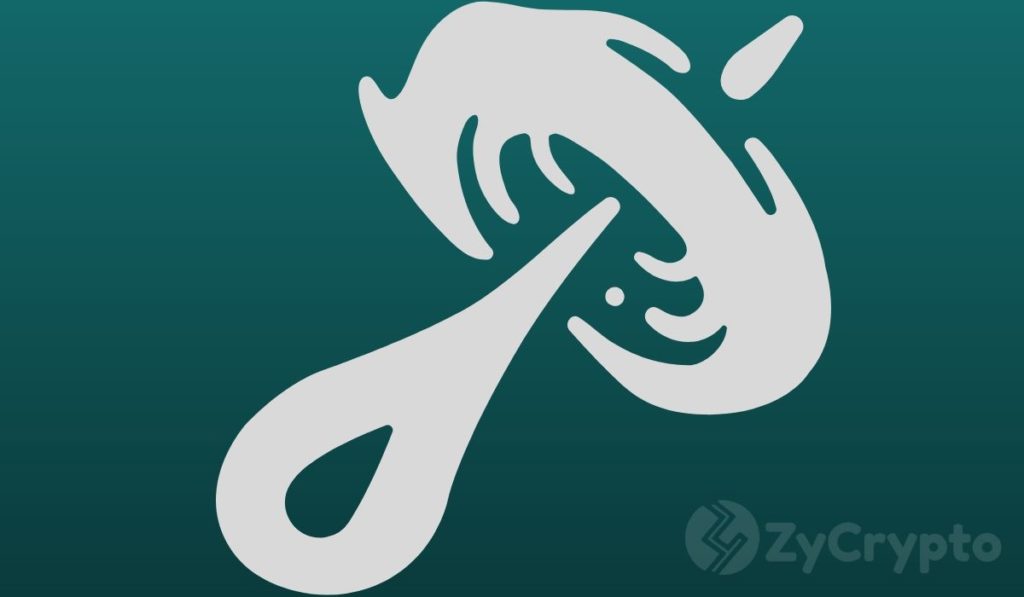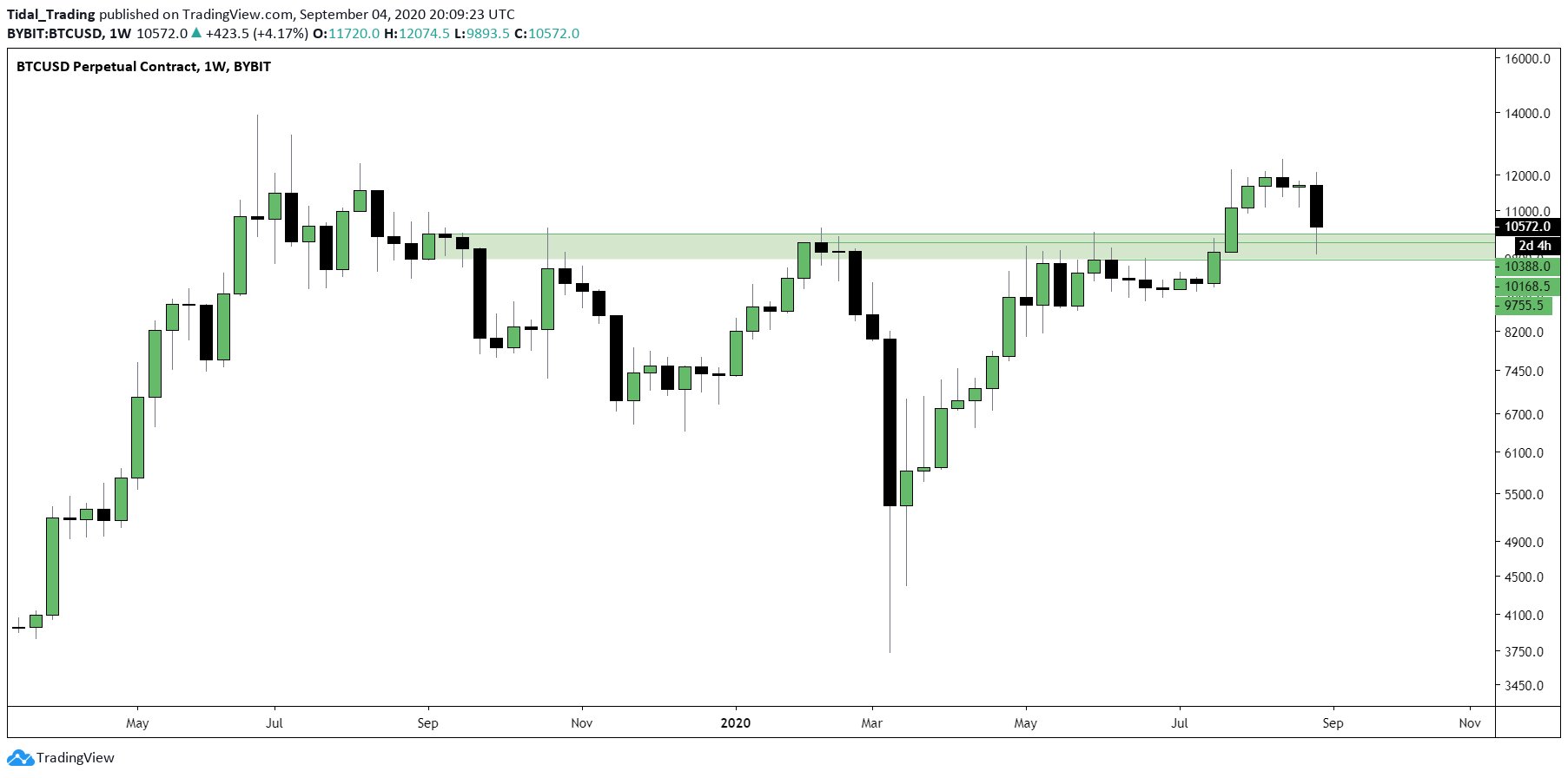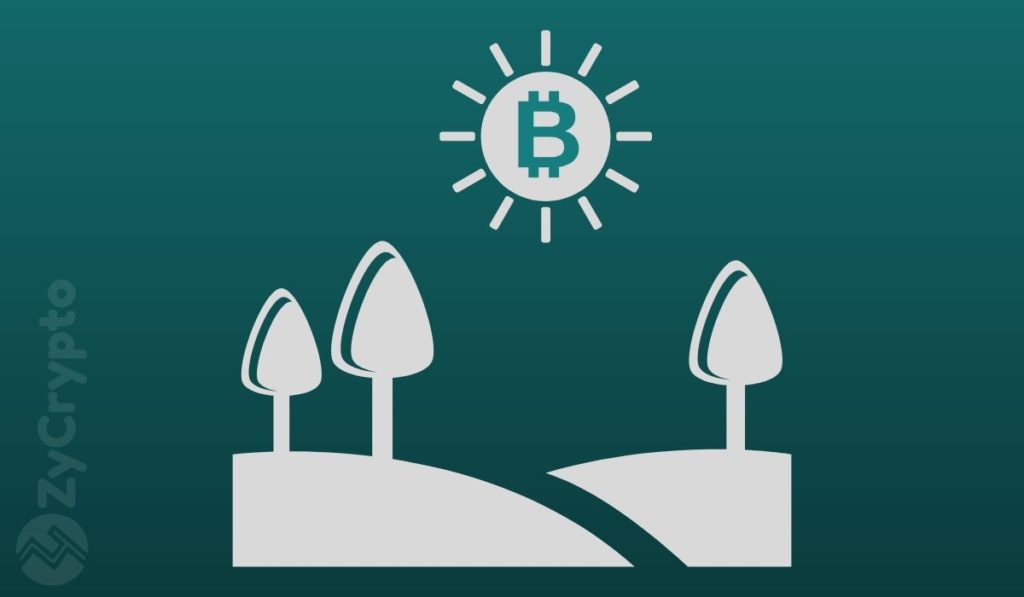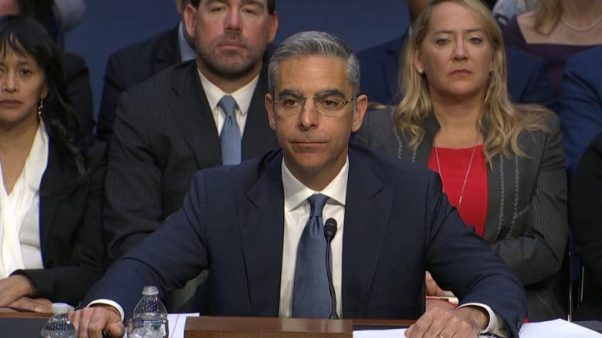
2020-1-10 18:30 |
It speaks for the unique irrationality and lingering immaturity of cryptocurrency markets that a year which followed a seemingly interminable death spiral and yet saw Bitcoin more than double its dollar value is not interpreted to be as bullish as it would be for any other asset.
On keener observation, one might take a different, weightier perspective that the reason 2019 didn't invite as much speculative interest or frenzied price optimism was because the focus began shifting away from the price towards more meaningful discussions as Bitcoin's influence burgeoned from a fleeting fringe asset to a tameless muse for an inexorable monetary revolution.
A record-breaking year on the chain for Bitcoin – the network crossed 100 quintillion hashes per second for the first time, percentage of SegWit transactions doubled this year from 30% to 60%, over a billion dollars’ worth of bitcoins were moved in a single transaction, record daily volumes were witnessed – it was no less eventful off the chain.
From Facebook's ill-conceived, ill-received escapade to exploit the blockchain buzz and bastardize open-source ideas to the exigency for a global monetary reform it engendered. This was a year of two halves – pre-Libra and post-Libra, with most major developments occurring as a direct consequence of Libra. Here we look back on them and there's only one place to start.
Bitcoin Finds An Unwitting Ally In LibraFollowing months of speculation surrounding its secretive development of a putative “Bitcoin rival”, Facebook officially unveiled the Libra project in June. It inspired unprecedented interest and immediate regulatory scrutiny on digital currencies at large.
Timeline June 18Facebook publishes white paper for its proposed global digital currency, Libra, and fails to impress. Regulators, central banks and financial watchdogs around the world quickly shout down the idea in unison, demanding a more detailed disclosure of Facebook's plans. A deluge of negative press ensued, so much to cast doubt whether Facebook may even be allowed to launch Libra.
July 11US President Donald Trump launches into a Twitter broadside against Libra, Bitcoin, and cryptocurrencies, denouncing their legitimacy as money, questioning their fundamentals and highlighting their role in enabling unlawful activities, “I am not a fan of bitcoin and other cryptocurrencies, which are not money, and whose value is highly volatile and based on thin air. Unregulated crypto-assets can facilitate unlawful behavior, including drug trade and other illegal activity.”
I am not a fan of Bitcoin and other Cryptocurrencies, which are not money, and whose value is highly volatile and based on thin air. Unregulated Crypto Assets can facilitate unlawful behavior, including drug trade and other illegal activity….
— Donald J. Trump (@realDonaldTrump) July 12, 2019
July 16Calibra CEO David Marcus testifies in front of the Senate Banking Committee. The committee focused on one simple question – Can Facebook be trusted to run its own currency? Senator Sherrod Brown from Ohio scoffed at the idea given Facebook's squalid track record,
“Like a toddler who has gotten his hands on a book of matches, Facebook has burned down the house over and over, and called every arson a learning experience. We would be crazy to give them a chance to experiment with people’s bank accounts.”
Calibra CEO David Marcus testifies in Congress July 17Day two of Libra hearing in front of the House Financial Services Committee features broader discussion on cryptocurrencies in general. Antitrust, Facebook's $5 billion FTC fine, Facebook's censorship policies, the composition of the Libra association, the nature and role of Libra and legitimacy of its claim to being a cryptocurrency like Bitcoin were discussed. During the hearing, Marcus assured the representatives in Congress that Facebook would not launch Libra before it has addressed all of their regulatory concerns. Bitcoin was the big winner at the hearings, being lauded as an “unstoppable force” which cannot be stopped by governments.
July 28In its second-quarter earnings report to the SEC, Facebook warns investors that Libra may never launch, citing “significant scrutiny from governments and regulators in multiple jurisdictions which is expected to continue.” The company conceded that the barriers due to uncertain regulatory framework may impede the project,
“There can be no assurance that Libra or our associated products and services will be made available in a timely manner, or at all.”
September 14Finance ministers of France and Germany vow to block Libra's proposed launch in Europe. The two ministers issued a joint statement firmly rebuking the Facebook project at a meeting of Eurozone finance ministers in Helsinki,
“France and Germany consider that the Libra project, as set out in Facebook's blueprint, is a threat to monetary sovereignty of states in the EU and fails to convince that risks to consumers will be properly addressed.”
Both ministers said they would back the development of an alternative public cryptocurrency instead and recommended plans for a cryptocurrency devised by the European Central Bank (ECB) to make the likes of Libra redundant.
October 14Following PayPal's withdrawal a week earlier, Visa, MasterCard, eBay, and Stripe quit the Libra Association on the eve of the inaugural Libra meeting. The exodus came after Democratic senators Brian Schatz of Hawaii and Sherrod Brown of Ohio sent letters to the companies warning of increased regulatory scrutiny over their own businesses should they persist with the Libra project. Despite the desertions, the remaining members of the Libra association proceeded with the first official meeting in Geneva, where the group drafted a charter and appointed its board of directors.
ImpactLibra sure went down like a lead balloon and could turn out to be a bigger fiasco for Facebook than its first virtual currency project, Facebook credits. However, the consequent spotlight on Bitcoin as the antithesis of a corporate digital currency meant that Libra was the trojan horse that smuggled Bitcoin into broader public consciousness.
Throughout its decade-long existence, Bitcoin has been a highly contentious subject in mainstream media, among bankers and lawmakers. However, beyond the occasional sound bite, lawmakers were never moved to firmly act and implement unequivocal regulation against Bitcoin and digital assets at large. All of that changed thanks to Facebook.
Facebook's foray into cryptocurrency got regulators talking about digital assets in the broader context and Bitcoin very specifically, as even the US president chimed in. A realization quickly dawned upon lawmakers that digital currencies were an inevitability and while Libra could be stopped, a fight against the “unstoppable force” of Bitcoin is one they could not hope to win.
It may not yield the desired result from Facebook's perspective but it wouldn't be far-fetched to imagine that history will recognize Libra as having expedited the adoption of digital currencies.
Bakkt Takes Bitcoin Out To Wall StreetBakkt futures finally arrived in September, a year on from when it was originally announced and was widely hailed as “the most bullish development in Bitcoin's history.” Despite the upbeat sentiments, immediate demand failed to materialize.
Timeline August 16Bakkt obtains regulatory clearance to launch its highly anticipated physically delivered Bitcoin futures, scheduled to launch on September 23. Having already obtained a green light from the U.S. Commodity Futures Trading Commission (CFTC) under a self-certification process, Bakkt was granted a charter by New York State Department of Financial Services, enabling the Bakkt Trust to hold custody of customers' bitcoins. Bakkt CEO Kelly Loeffler enthused in a blog post that this
“offers customers unprecedented regulatory clarity and security alongside a regulated, globally accessible exchange in a market underserved by institutional-grade infrastructure.”
September 23Bakkt makes an underwhelming debut, with merely 73 contracts being traded on launch day. After facing multiple delays spanning 18 months and running into dogged opposition from regulators, the first physically settled Bitcoin futures contracts inspired little interest. While some observers pointed to a similar muted early response before CME's contracts became popular, the market seemingly responded to the sluggish start by immediately slumping below 8,000, to register a 3-month low. Interest in Bakkt futures is expected to rise as brokerages become equipped to handle contracts settled in physical bitcoins.
October 28Bakkt announces consumer app for bitcoin payments. The futures platform revealed in a blog post that their next mission following the successful launch of Bakkt futures and the Bakkt warehouse was to unlock the value of digital assets through consumer payments. The payments app will support a superset of digital assets besides bitcoin and testing is set to begin in 2020 with coffee chain Starbucks. Bakkt's Chief Product Officer Mike Blandina said that consumer payments could drive broader acceptance of digital assets.
November 12Bakkt expands custody services for institutional clients. Two weeks after announcing the launch of a consumer app for retail clients and options on its Bitcoin futures contracts, Bakkt COO Adam White revealed in a blog post that Bakkt's custodian, the Bakkt Warehouse, was expanding custody services for clients beyond those trading futures contracts. White remarked that the ability to offer general warehousing services represented a critical link in the institutional adoption of Bitcoin,
“When investors have ready access to regulated custodians whose security and processes they trust, the full potential of this emerging asset class and technology can flourish.”
December 9Just over two months since launching physically delivered Bitcoin futures, cash-settled futures and options on futures contracts are integrated by Bakkt. The company revealed in a blog post that its physically-settled bitcoin contracts would be used as a benchmark for the new products and likened the approach to parent company Intercontinental Exchange's (ICE) approach towards Brent Crude Oil Futures, for which ICE similarly launched a number of swaps and options anchored to the crude oil product.
ImpactIf Libra sprung lawmakers into action, early indications are that Bakkt could have a similar effect on institutional investors who've long held a watching brief on Bitcoin but lacked adequate infrastructure they're accustomed to and could trust to actually take a punt.
Although the market reacted to the launch with a violent sell-off in the immediate aftermath and volume remained sluggish for weeks, 6226 contracts, valued at 44 million, traded on a single day towards the end of the year and steady volumes upwards of 2000 contracts were recorded throughout December.
Derivative offerings for new assets have always taken time to cajole the punters, partly because brokerages aren't yet equipped to handle them, more so in this case as the bitcoins are physically delivered. It also stands to reason that institutions aren't much bothered if the bitcoins are physically delivered, which may be why Bakkt has now resorted to offering the alternative of cash-settled contracts.
While it's too early to gauge Bakkt's impact, until there's a significant regulated underlying spot market for Bitcoin, ICE's involvement in derivatives may not be sufficient to pique the interest of a predominantly risk-averse demographic. It's also the reason why SEC remains reluctant to ratify any of the myriad ETF proposals.
Crypto Turns Savior Of The SanctionedVarious UN reports over the last few years have speculated on North Korea's use of cryptocurrency to skirt around trade and economic sanctions. In 2019, the trend caught on as other countries beset with similar sanctions explored the idea to circumvent the global banking network.
Timeline January 29Iran holds talks with 8 countries overuse of cryptocurrencies in trade to evade US sanctions. Head of Iran’s Trade Promotion Organization (TPO) revealed the country was in active negotiations with a view to using cryptocurrency in foreign trade, hoping that it would allow Iran to attract foreign investors into the country,
“Representatives from Switzerland, South Africa, France, England, Russia, Austria, Germany, and Bosnia have visited Iran to hold related talks about the issue.”
July 4Cuba deliberates using cryptocurrency to skirt U.S. sanctions. Cuba’s Communist government said it was studying the potential use of cryptocurrency as part of a series of measures to boost its economy amid a deepening crisis exacerbated by U.S. sanctions. “We are studying the potential use of cryptocurrency … in our national and international commercial transactions, and we are working on that together with academics,” Economy Minister Alejandro Gil Fernandez said.
September 11Iranians' use of Bitcoin to evade US economic sanctions is revealed in a survey conducted through Persian Telegram groups. Over a third of 1,650 respondents reported earning their income in cryptocurrency, largely through mining, trading and providing local exchanges with liquidity in Iranian rials. Over 70 percent of respondents expressed an interest in learning more about local mining operations. Having been excluded by KYC compliant exchanges abroad, the respondents felt the community needed easier access to exchanges in order to grow. The study also found that Iranians were holding a high concentration of wealth in cryptocurrencies.
September 19North Korea begins work on developing its own cryptocurrency to avoid crippling international sanctions and circumvent the US-dominated global financial system. Alejandro Cao de Benos, the official in charge of North Korea’s cryptocurrency conferences, said that while the project was still in the very early stages with deliberation ongoing regarding what type of goods it would be backed by, the digital currency will be “more like bitcoin or other cryptocurrencies,” and that there were no plans to digitize the North Korean won.
September 28Venezuela's central bank, Banco Central de Venezuela (BCV) runs internal testing to figure out if it can hold cryptocurrency among its foreign reserves. Faced with US sanctions, a three-decade low of $8 billion in international reserves, and having tried and failed with their quest to establish the Petro as a sovereign cryptocurrency, Maduro's regime was said to be seeking new ways to access the global financial system. Venezuela's state-owned oil company, Petroleos de Venezuela SA (PDVSA) has now asked to be able to send bitcoins to the central bank and have it be used to pay foreign entities that are owed money.
ImpactFrom a macroeconomic standpoint, the role of cryptocurrency is so pivotal to effecting change which is not in the interests of larger economies, specifically United States’ practice of exercising sharp power and slapping trade and economic sanctions on recalcitrant foreign states. Bitcoin best serves the interests of the likes of Venezuela, Cuba, Hong Kong, North Korea, and Iran.
Back in May, US Democrat Congressman Brad Sherman perfectly summed up the threat cryptocurrencies pose to the financial might of the US on the macro landscape, when he argued that Bitcoin and cryptocurrencies needed to be “nipped in the bud.”
“An awful lot of our international power comes from the fact that the US dollar is the standard unit of international finance and transactions,” Sherman said at a meeting of the House Financial Services Committee.
“Clearing through the New York Fed is critical for major oil and other transactions. It is the announced purpose of the supporters of cryptocurrency to take that power away from us, to put us in a position where the most significant sanctions we have against Iran, for example, would become irrelevant.”
It is understandable then that the US would be dragging its heels on cryptocurrency regulation, but the rest of the world appears to have cottoned on to an opportunity to extricate itself from a meddlesome bully.
China Quick Off The Blocks In Blockchain RaceThe most decisive response to the spectre of a corporate digital currency came, somewhat surprisingly, from China. However, President Xi Jinping's imprimatur for blockchain innovation was unsurprisingly not extended to Bitcoin.
Timeline August 12China's central bank, People's Bank of China (PBOC) reveals that it will soon launch its own state-backed cryptocurrency following five years of research. Mu Changchun, deputy director of the PBOC, said the national cryptocurrency was “close to being out” at an event held by China Finance 40 Forum. The new currency would rely on a “two-tier” system, whereby the PBOC would retain control over the currency's issuance while regional banking and financial institutions interfaced with the public in the role of fiat ramps for users to exchange their yuan for the digital currency.
October 25President of China, Xi Jinping urges the country to seize blockchain opportunity. Speaking at the 18th collective study of the Political Bureau of the Central Committee, Xi emphasized the use of blockchain as an important breakthrough for independent innovation of core technologies and called for an acceleration of efforts to develop blockchain ideas for industrial innovation, economic and social integration. He said it was necessary to implement the rule of law into the management of blockchain and promote the safe and orderly development of blockchain.
China’s President Xi Jinping at the blockchain summit in October November 7China scraps its plans to prohibit Bitcoin mining. In its finalized Catalog for Guiding Industry Restructuring, China's economic planning agency, the National Development and Reform Commission (NDRC) omitted Bitcoin mining as an industry to be phased out of the country. In its initial draft back in April, the NDRC, charged with advising economic reform strategies and policies to local governments within China, had recommended “virtual currency mining, such as the production process of bitcoin” as an industry that needed to be eliminated. The agency stated that a revision of its original plans was made after public consultation, taking into consideration over 2500 suggestions received since the original draft was published.
November 11China's state-run media outlet publishes a front-page story on Bitcoin. Xinhua News Agency, the highly influential official press agency of China and the largest news agency in the world, acknowledged Bitcoin as the first successful application of blockchain technology and went into detail about how Bitcoin and its underlying blockchain technology works, dubbing it “one of the hottest topics in recent years.” Although it seemed to mark a paradigm shift in the country's disposition towards Bitcoin, the article largely focused on some of Bitcoin's oft-cited criticisms, such as its use in money laundering and dark web transactions. Discerning observers viewed this as an effort to distinguish blockchain from Bitcoin ahead of the launch of a digital currency developed by China's central bank.
November 22Chinese law enforcement begins crackdown on cryptocurrency exchanges. Authorities in Shenzhen, the tech hub of China, identified 39 illegal cryptocurrency companies responsible for defrauding everyday consumers, including several exchanges. The businesses were issued a notice and are due to be investigated further for potential violations. China's central bank followed up with a regulatory update to “strengthen regulation, control and clamp down on cryptocurrency trading,” which criminalized coin offerings, fund-raising activities and offering of services by overseas trading platforms to Chinese citizens. PBOC’s Shanghai headquarters issued a statement that it would crack-down on a resurgence of illegal activities around virtual currencies, and cautioned investors not to confuse cryptocurrencies with blockchain technology.
ImpactThe Chinese President’s rallying call to the nation in late October, which featured no mention of Bitcoin, ensured that a year which began in a trade conflict between the two largest economies ended in a global race for fiat blockchain supremacy.
US lawmakers may have dismissed Facebook's fair warning of “the technology being developed elsewhere” as scaremongering tactics to railroad approval for Libra, but China's brazen blockchain embrace and aggressive push for a Central Bank Digital Currency (CBDC) leaves other central banks with little choice but to follow suit.
Besides enabling more efficient capital control and surveillance, a CBDC would allow China to trade with countries ostracized from the global banking network. As more countries adopt a similar approach, economic sanctions may become a thing of the past.
France, Japan Spearhead Retail AdoptionIn a year rife with trade conflicts, lending crises, rate cuts and easing measures, while many subscribed to the store of value narrative, promoting Bitcoin's utility as digital gold, France and Japan embarked on measures to accelerate the adoption of cryptocurrency payments.
Timeline August 3Apple walks back on plans to allow cryptocurrency purchases with Apple credit card. Apple's partner in the project, Goldman Sachs posted a customer agreement to its website which said that “the card cannot be used to purchase cash advances or cash equivalents that include cryptocurrencies.” Further, it was revealed that the use of the credit card with jailbroken Apple devices will also be prohibited and any users attempting to modify their devices will be locked out of their credit card accounts.
August 19Japanese e-commerce giant, Rakuten launches cryptocurrency exchange through its smartphone wallet app, Rakuten Wallet. Through the smartphone app, customers can deposit/withdraw Japanese yen or a cryptocurrency, transact between different cryptocurrencies without fee and make payments. The app will support three cryptocurrencies – Bitcoin (BTC), Ethereum (ETH), and Bitcoin Cash (BCH). To ensure the security of funds, all crypto assets owned by customers will be held offline in cold storage and private keys will be managed through a multi-signature scheme.
August 28Hong Kong pro-democracy protests against Chinese interference spurs widespread Bitcoin adoption in the region. Reports emerged that the state of political turmoil exacerbated by China's proposed extradition bill had driven local businesses and retailers to seek non-sovereign forms of payment in an act of defiance. Hong Kong department store, Pricerite announced that it would accept Bitcoin, Ether, and Litecoin at all its outlets, with measures being taken to further promote the use of cryptocurrencies for day-to-day payments.
September 2425,000 retail venues in France will be ready to accept payments in Bitcoin by early 2020. The announcement was made during Paris retail week by point-of-sale technology provider Global POS, in partnership with mobile wallet app provider EasyWallet and alternate payment services provider Easy2Play. While payments can be made by consumers in bitcoins, the funds will be automatically converted into Euros at the moment of sale through exchange platforms Deskoin and Savitar. The solution will not affect the payment process for consumers and retailers and is within the legal framework defined by the newly defined PACTE law.
October 22The Opera web browser adds Bitcoin payments to its Android app. The new functionality allows Opera for android users to make payments in bitcoins directly from a built-in digital wallet. Charles Hamel, Head of Crypto at Opera, said the company wanted to bring cryptocurrency visibility to the 300 million users of its browser app,
“Most people have heard of bitcoin and thus we saw it as important to support it and make this feature more familiar to a larger group of people.”
ImpactRussian cybersecurity firm Kaspersky published a survey in June that found that only one in ten felt they understood how cryptocurrencies work and even among those who felt they understood, one in five stopped using it as things got too complicated for them.
Without question, there’s a knowledge gap here that needs to be addressed. But you shouldn’t have to swot up on the technical intricacies of Bitcoin to use it. Building familiarity through simple, intuitive wallet applications and merchant integration for payments is where the education must begin. Nothing piques Bitcoin's curiosity as getting to use it and using it should be as easy as using any other form of online payment.
Even for Bitcoin to gain legitimacy as a store of value to a wider audience, the cryptocurrency needs to prove itself to have utility beyond just being traded back and forth. Gold had to prove its mettle as money before it came to be recognized as a store of value.
Exchanges Drag Bitcoin Through The MudProgress made on adoption and regulatory fronts might have gone further this year were it not for the squalid scene of inadequately secure, insufficiently transparent custodial exchanges, lawsuits and investigations into their mismanagement.
Timeline January 15New Zealand-based cryptocurrency exchange Cryptopia goes offline citing a major hack. The exchange announced the news on Twitter, stating that it “suffered a security breach which resulted in significant losses.” New York-based blockchain data analytics firm, Elementus estimated the value of stolen funds to be approximately $16 million.
June 21Ernst and Young's (EY) report found that deceased QuadrigaCX founder Gerald Cotton mismanaged and margin traded with customers' funds,
“Significant volumes of Cryptocurrency were transferred off-platform outside Quadriga to competitor exchanges into personal accounts controlled by Mr. Cotten. It appears that users' cryptocurrency was traded on these exchanges and in some circumstances used as security for a margin trading account established by Mr. Cotten.”
July 19US Commodity Futures Trading Commission (CFTC) opens investigation into the cryptocurrency derivatives exchange platform, BitMEX. The probe was focused on whether BitMEX broke rules by allowing Americans to trade on the platform without being registered with the agency for servicing American customers as CFTC considers virtual currencies like Bitcoin to be commodities, and it has jurisdiction over futures and other derivatives based on them.
August 7An unidentified individual leaks Binance KYC data through various social media channels. Binance released a statement claiming that the individual had threatened and harassed the exchange, demanding a ransom of 300 BTC for withholding 10,000 photos dated from February 2018 that bear similarity to Binance KYC data submitted by their users for verification purposes. The exchange categorically refuted the authenticity of the leaked images, as they did not contain the digital watermark imprinted by their system.
Binance KYC leak via Telegram revealed sensitive user information submitted for verification October 7A class-action lawsuit against Bitfinex and Tether claims $1.4 Trillion in damages. Represented by Roche Freedman LLP, the US law firm which recently won a federal case against Craig Wright, the filing alleged that Bitfinex and its affiliated entities engaged in fraud and manipulation on an unprecedented scale,
“The crimes committed by Bitfinex, Tether, and their executives include Bank Fraud, Money Laundering; Monetary Transactions Derived From Specified Unlawful Activities, Operating an Unlicensed Money Transmitting Business, and Wire Fraud.”
ImpactSeemingly setting and breaking a new hash rate record on a weekly basis, Bitcoin may be on its way to becoming one of the most secure distributed networks in the world, but the services built around the network leave a lot to be desired.
An escalation of security breaches this year highlights the need for decentralized exchanges, which currently flounder due to lack of liquidity as users continue to entrust custodial exchanges with their funds.
Blockchain security firm CipherTrace reported that scammers netted $4.26 billion in aggregate for 2019, up 150% from $1.7 billion in 2018, with insider thefts accounting for a majority of losses. Besides the QuadrigaCX collapse which still remains a mystery, the Plus Token app, an alleged Ponzi scheme based in South Korea which came to light in June, is believed to have defrauded millions of users out of $2.9 billion in crypto assets.
There is no greater hindrance to cryptocurrency adoption as poorly secured, jury-rigged custodial exchanges being allowed to operate in laxity with impunity. But it's hard to blame exchanges when the culture of trusting third parties with peer-to-peer cryptocurrency assets has been normalized.
Banks Brace Themselves For Digital FutureAlthough Libra's ambitions initiated exploratory discourse, it wasn't until China made official its plans to develop a central bank digital currency that other central banks found themselves in a mad scramble to undertake similar measures, lest they concede the first-mover advantage to China in the impending digital reformation of the baking system.
Timeline June 25Deutsche Bank blames ‘aggressive' central banks for making Bitcoin a more attractive alternative to people. Jim Reid, Research Strategist at Deutsche Bank, cited looming interest rate cut by the US central bank and frequent quantitative easing practices adopted by central banks around the world as reasons for instability of the existing fiat currency system, “if central banks are going to be this aggressive, then alternative currencies do start to become a bit more attractive,” adding that the current monetary system may be on its last legs and could be replaced by more efficient digital currencies in the future.
July 7European Central Bank Executive Board member Benoit Coeure urges regulators around the world to act fast in preparing for the push by US tech giants such as Facebook Inc. into the financial system,
“It’s out of the question to allow them to develop in a regulatory void for their financial service activities because it’s just too dangerous. We have to move more quickly than we’ve been able to do up until now.”
Coeure further added that the development of digital currencies is exposing deficiencies in existing regulation and the failure of the banking system to adopt the new technology themselves.
September 1Governor of the Bank of England (BoE), Mark Carney suggests that a virtual currency could one day replace the US dollar as king of the foreign exchange market. After conceding that the current financial system may be outdated for the Internet age, Carney urged central banks to seek to mitigate the influence of the US dollar and be receptive to the role of cryptocurrencies in the foreign exchange market,
“US developments have significant spillovers onto both the trade performance and the financial conditions of countries even with relatively limited direct exposure to the US economy. In the longer term, we need to change the game. It is an open question whether such a new (cryptocurrency) would be best provided by the public sector, perhaps through a network of central bank digital currencies.”
November 16BRICS coalition discusses creating a common cryptocurrency to take down the US dollar. Brazil, Russia, India, China and South Africa, a bloc of major emerging economies known as BRICS, agreed to develop a common payment system, including the creation of a cryptocurrency for mutual payments between the member nations. Kirill Dmitriev, the head of the Russian Direct Investment Fund (RDIF), made the proposal at the BRICS summit in Moscow as a way of tackling “increasing non-market risks of the global payment infrastructure” created by US sanctions against various allied nations and the US-China trade tussle. The BRICS countries also deliberated the establishment of an alternative to SWIFT for mutual payments and seek to further diminish dollar's role in foreign trade, which has fallen from 92% to 50% in the last few years.
Common cryptocurrency for mutual payments was broached at the BRICS summit in Moscow November 28German parliament passes bill to allow banks to hold customers' crypto assets. The new law, set to take effect on New Year’s Day, will allow banks to treat cryptocurrency like any other traditional asset and enable cryptocurrency transactions on their online banking platforms, effectively allowing banks to operate as custodial cryptocurrency exchanges. Banks and existing cryptocurrency custody providers must acquire a license from Germany’s financial regulator BaFin by the end of the year to operate in the country under the new law. Sven Hildebrandt of DLC, a German crypto consulting firm welcomed the law as a huge leap in cryptocurrency adoption,
“Germany leads the way in crypto regulation, for sure. This leads to institutional investors coming to Germany, as they want security and regulation. Germany is well on its way to becoming a crypto-heaven.”
ImpactAlthough China, probably fed up with US trade sanctions, was the first to take steps to mitigate the dollar’s influence, a banking reform has been overdue for decades and according to a UN report, at least 40 of its member countries were exploring the implementation of a state-backed digital currency.
Yet, it’s hard to imagine any of the major economies would have seriously considered the blockchain solution in 2019 were it not for Facebook’s Libra proposal – the very real threat of a corporate currency beyond their purview.
Taking an alternative approach, Germany passed a new law that allows banks to take custody of cryptocurrencies and also sell them, effectively assuming the role of custodial cryptocurrency exchanges. On the face of it, this seems progressive but banks taking cryptocurrencies custody could subject finite assets to fractional reserve banking practices, artificially inflating supply and diluting value.
As we enter a new decade, a power struggle is in the offing between those who believe in Bitcoin’s fundamentals and peer-to-peer ethos far removed from the banking system, central banks that are looking to develop fiat blockchains to perpetuate an unsalvageable debt-financed system and central banks that are looking to lure Bitcoin into the selfsame system.
One might say Bitcoin has graduated from being challenged by assorted shitcoins to assorted state coins.
origin »Bitcoin price in Telegram @btc_price_every_hour
Global Cryptocurrency (GCC) на Currencies.ru
|
|




